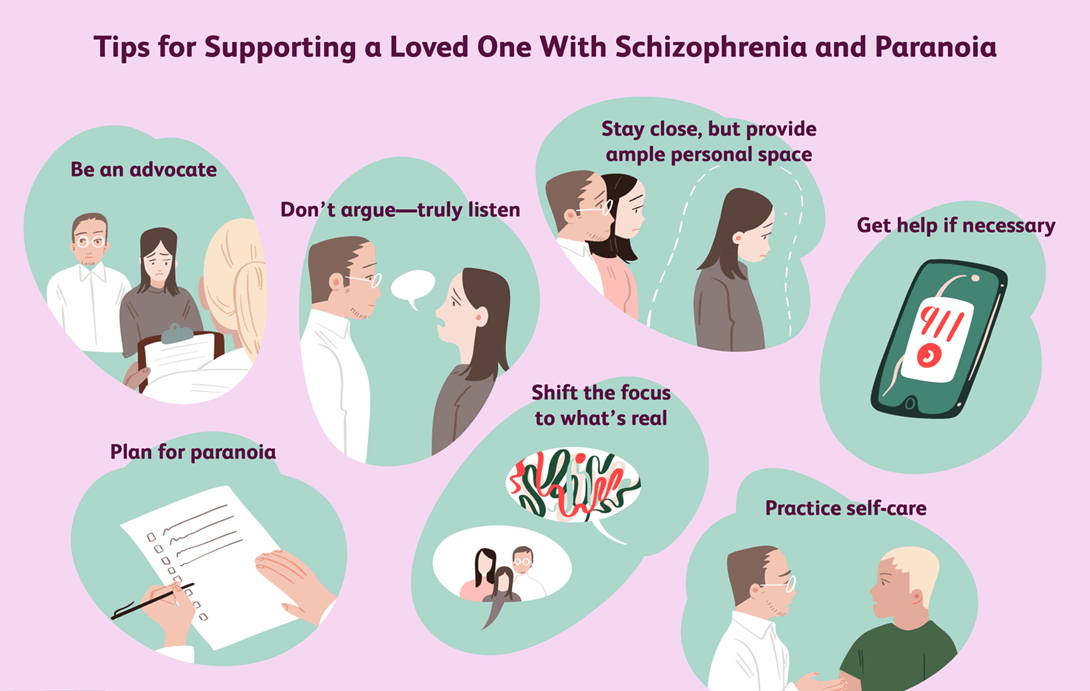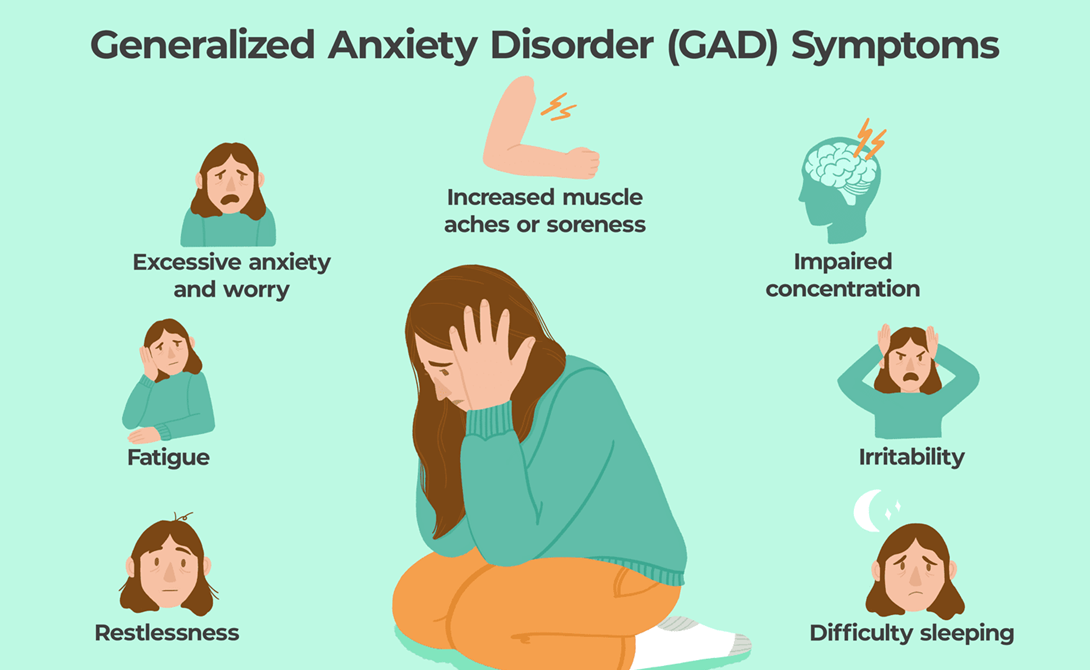The nurse who has been caring for a client with generalized anxiety disorder (GAD) recognizes that care has been effective when the client is able to: (SELECT ALL THAT APPLY)
Recognize signs of escalating anxiety.
Avoid all situations that cause stress.
Recognize that they need to take medications as ordered.
Utilize relaxation techniques to limit anxiety.
Discuss plans to handle panic attacks if they occur.
Correct Answer : A,C,D,E
Choice A Reason:
Recognizing signs of escalating anxiety is a crucial skill for clients with GAD. This awareness allows them to identify early warning signs and implement coping strategies before anxiety becomes overwhelming. Early recognition can prevent the escalation of symptoms and reduce the impact on daily functioning. This skill is often developed through cognitive-behavioral therapy (CBT) and other therapeutic interventions that focus on self-awareness and self-monitoring.
Choice B Reason:
Avoiding all situations that cause stress is not a practical or effective strategy for managing GAD. While it is important to reduce unnecessary stress, complete avoidance can lead to increased anxiety and avoidance behaviors, which can worsen the disorde. Instead, clients are encouraged to develop coping strategies to manage stress and face anxiety-provoking situations gradually5. This approach helps build resilience and reduces the overall impact of anxiety on their lives.
Choice C Reason:
Recognizing the need to take medications as ordered is essential for effective management of GAD. Medication adherence ensures that the client maintains therapeutic levels of medication, which can help control symptoms and prevent relapse. Non-adherence to medication regimens is a common issue in mental health treatment and can lead to worsening symptoms and increased risk of hospitalization. Therefore, understanding and adhering to prescribed medications is a key component of effective care.
Choice D Reason:
Utilizing relaxation techniques to limit anxiety is a highly effective strategy for managing GAD. Techniques such as deep breathing, progressive muscle relaxation, and mindfulness can help reduce physiological arousal and promote a sense of calm. These techniques are often taught in therapy and can be practiced regularly to help manage anxiety symptoms. Incorporating relaxation techniques into daily routines can significantly improve the client’s ability to cope with stress and anxiety.
Choice E Reason:
Discussing plans to handle panic attacks if they occur is an important aspect of managing GAD. Having a clear plan in place can help the client feel more in control and reduce the fear of experiencing a panic attack. This plan may include strategies such as deep breathing, grounding techniques, and seeking support from trusted individuals. By preparing for potential panic attacks, clients can reduce their overall anxiety and improve their ability to manage symptoms effectively.
Nursing Test Bank
Naxlex Comprehensive Predictor Exams
Related Questions
Correct Answer is A
Explanation
The correct answer is a.
Choice A Reason:
The statement “Ask the client, ‘What are the voices saying to you?’” is correct. Engaging the client in a conversation about their hallucinations can help the nurse understand the content and nature of the hallucinations, which is crucial for assessing the client’s risk of harm to themselves or others. This approach also validates the client’s experience and can help build trust and rapport. It is important to approach the client with empathy and without judgment, as this can help in managing the symptoms more effectively.

Choice B Reason:
The statement “Give the client a PRN dose of benztropine” is incorrect. Benztropine is an anticholinergic medication used to treat extrapyramidal symptoms caused by antipsychotic medications. It is not used to manage auditory hallucinations directly. Administering benztropine without a clear indication could lead to unnecessary side effects and does not address the immediate issue of the hallucinations.
Choice C Reason:
The statement “Call and report the behavior to the physician” is incorrect. While it is important to keep the physician informed about significant changes in the client’s condition, the immediate intervention should focus on addressing the client’s current experience. Reporting the behavior without first attempting to understand and manage the hallucinations may delay appropriate care and support for the client.
Choice D Reason:
The statement “Tell the client, ‘Well, I see you’re distracted right now. We’ll talk more later.’” is incorrect. This response dismisses the client’s current experience and may make them feel misunderstood or ignored. It is important to address the client’s immediate needs and provide support rather than postponing the conversation. Acknowledging the client’s experience and offering to discuss it can help in managing the symptoms and providing appropriate care.
Correct Answer is C
Explanation
Choice A Reason:
Labeling mild anxiety as pathologic and suggesting that it warrants postponing the test is not accurate. Mild anxiety is a normal response to stress and can actually be beneficial in certain situations. It helps to increase alertness and focus, which can improve performance on tasks such as taking a test. Pathologic anxiety, on the other hand, is excessive and persistent, interfering with daily functioning and requiring clinical intervention.
Choice B Reason:
The idea that mild anxiety may be transferred to classmates and result in generalized anxiety disorder is not supported by evidence. Anxiety is a personal experience and while it can be influenced by the environment, it is not something that can be directly transferred from one person to another. Generalized anxiety disorder is a chronic condition characterized by excessive worry about various aspects of life, and it develops due to a combination of genetic, environmental, and psychological factors.
Choice C Reason:
While severe anxiety can interfere with cognitive ability, mild anxiety typically does not. In fact, mild anxiety can enhance cognitive performance by increasing alertness and focus. It is only when anxiety becomes overwhelming that it starts to impair cognitive functions such as memory, attention, and problem-solving.

Choice D Reason:
Mild anxiety is conducive to concentration and problem-solving. This level of anxiety can act as a motivator, helping individuals to focus better and perform tasks more efficiently. The Yerkes-Dodson law suggests that there is an optimal level of arousal (including anxiety) that enhances performance. Too little arousal can lead to underperformance, while too much can cause performance to deteriorate.
Whether you are a student looking to ace your exams or a practicing nurse seeking to enhance your expertise , our nursing education contents will empower you with the confidence and competence to make a difference in the lives of patients and become a respected leader in the healthcare field.
Visit Naxlex, invest in your future and unlock endless possibilities with our unparalleled nursing education contents today
Report Wrong Answer on the Current Question
Do you disagree with the answer? If yes, what is your expected answer? Explain.
Kindly be descriptive with the issue you are facing.
